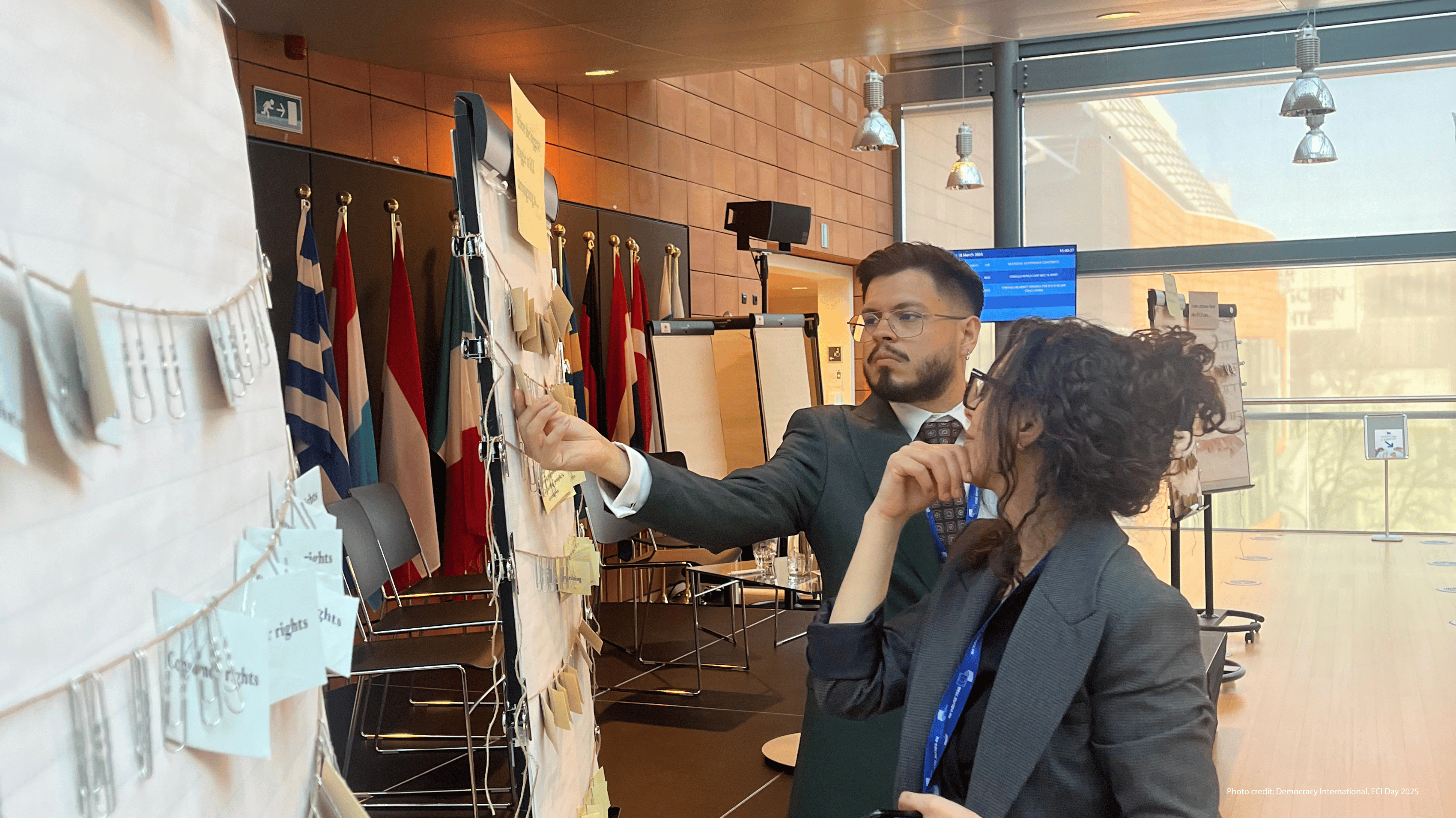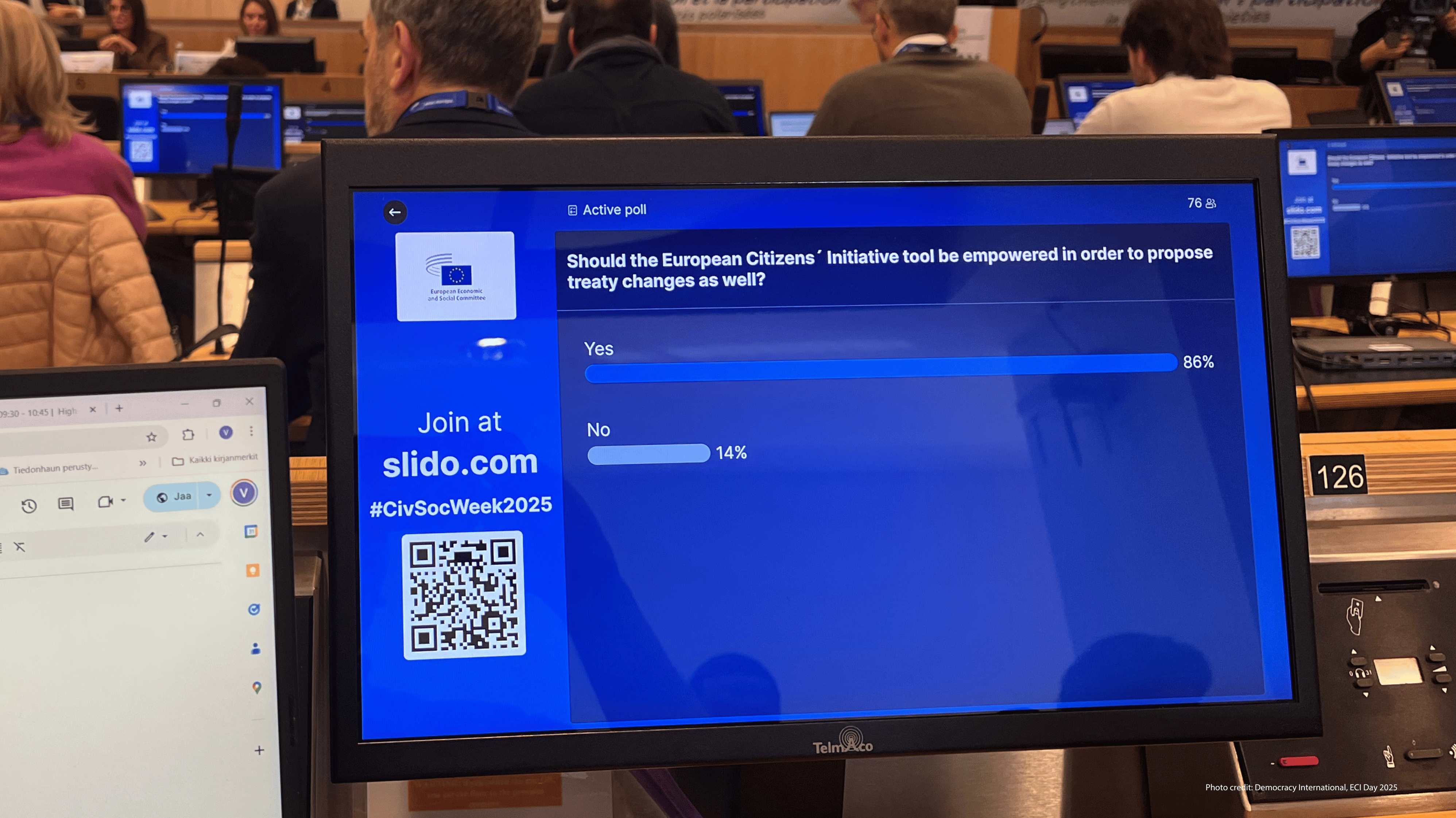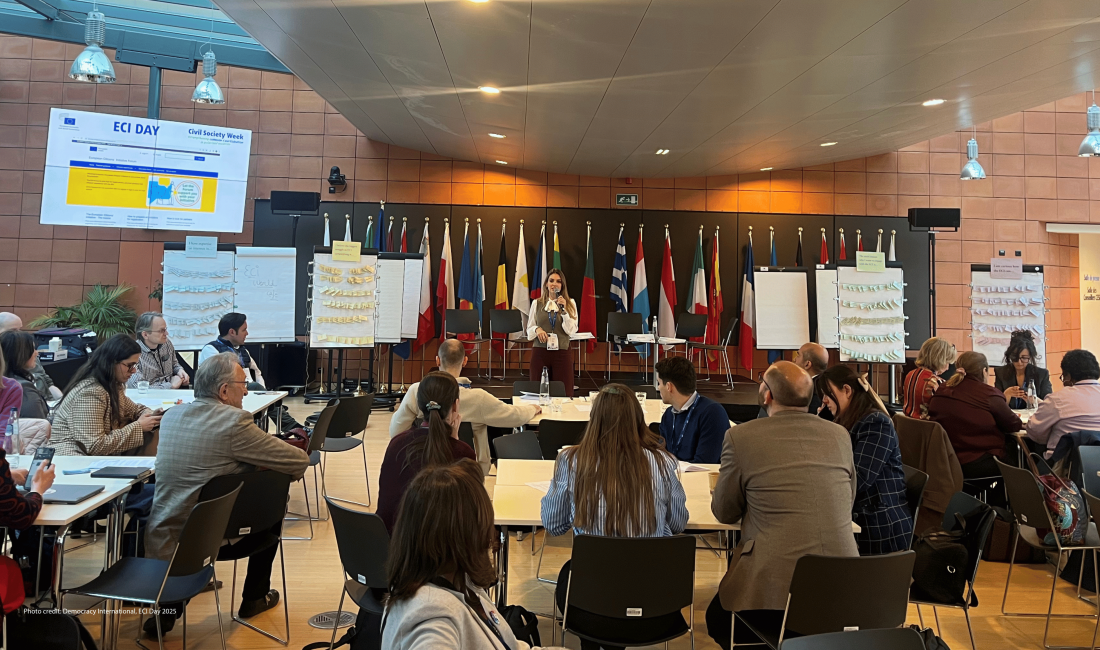It is the most wonderful time of the year…and it’s not Christmas! There’s one special day a year that brings campaigners, supporters, and curious newcomers to Brussels to discuss the European Citizens’ Initiative (ECI) Day! This year it was held on 18 March as part of the European Economic and Social Committee’s Civil Society Week. From interactive workshops to reflections by EU officials, one theme stood out: while the ECI has the potential to shape EU policy, it urgently needs greater support and visibility.
Brussels served as the backdrop for ECI Day—an annual event co-organised by Democracy International, uniting current, former, and could-be campaigners alongside others interested in the tool. This year’s panels and workshops revealed both the aspirations and the real-life challenges of those trying to use the ECI to set the political agenda within the EU.
The ECI Day formed part of Civil Society Week, placing the initiative in a broader context of reimagining politics and the EU’s future together with civil society. Even before ECI day, key themes had already emerged that set the stage for a deeper look.

A poignant example came from Lithuanian EESC member Tatjana Babrauskiene, who recounted how many in her home country ask: “What is going on there in Europe?” She noted a similar perception existing all across Eastern Europe—where “Europe” is often imagined as a distant land under the rule of Brussels, signified by “Here be commissioners” scribbled across the westmost edge of the map.
What ECIs attempt to do is to set the agenda for the proverbial dragons. The principle is simple: Europe is where its citizens are. Whether living in a rural village or an opulent capital, regardless of a signature written on paper or gathered online, Europeans have the right to shape the decisions that affect them.
During ECI Day, this understanding was palpable in Democracy International’s hands-on workshop. There, organisers of current and former ECIs engaged in peer-to-peer discussions guided by colourful prompt cards. Many participants were seasoned activists, who appreciated meaningful dialogue and called for more of it, stating often that they know what to do—but just lack the resources. For grassroots, often volunteer-driven campaigns, funding remains a critical hurdle.
Daniela Vancic from Democracy International summarised the broader issue in a separate panel discussion: “Democracy needs money.” Defending democracy means more than security—it requires investment in democratic institutions and innovations, from the ECI to citizens’ assemblies and even to election observation.
European Ombudsman Teresa Anjinho echoed this need, reminding participants that citizens’ initiatives are “a call for action and a sign of continued belief in the European project.” But, she warned, vague communication and inflated expectations around the ECI’s impact risk disillusionment. Clearer messaging—especially regarding the European Commission’s role and the realities of the process—is essential.
Calls for faster, more transparent institutional responses resonated throughout the day. Nicolae Ștefănuță, Vice-President of the European Parliament, drew on his activist past to position ECIs as an important avenue to channel public frustration constructively - citizens’ initiatives prevent people from turning to radical parties, he said. He also urged campaigners not to rely solely on online tools, as people you meet on the street are more likely to become ambassadors for your cause.
The ECI is one of the most accessible tools for transnational participation in the EU. Campaigns span borders and topics—from abortion rights and housing to animal welfare and farming. Most attendees saw the ECI as a vital complement to representative democracy.
The issues discussed throughout the day underscored the need for better outreach and inclusion. Young people and rural communities must be consulted in EU decision-making. On democratic grounds, the EU should reach those who feel left behind—and, by doing so, it can protect its own legitimacy.
Participants also explored the balance between online and offline activism. While digital tools and AI are increasingly embedded in daily life, meaningful connections still happen face-to-face. In other words: go outside and touch grassroots—and plan what to post next.
Above all, democracy needs investment. Participatory processes require stable funding, and democratic institutions must be built and maintained—not taken for granted.

By the end of the day, one message rang loud and clear: Europe must live up to its promise of putting citizens at the centre of democracy. Democracy International continues to push for stronger political follow-up for successful ECIs and greater visibility for campaigns. The ECI can still evolve—becoming a more impactful instrument for participatory democracy. Now, it’s time for the EU to answer the call.




